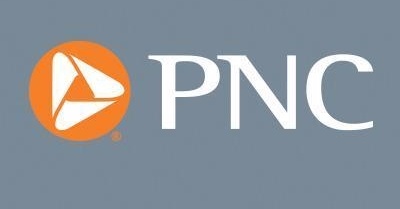
Demonstrating Resilience in Discretionary Spending
- Topline ISM Services Purchasing Managers Index (PMI) composite increased to 56.7 in July 2022
- The ISM Services Prices component index fell to 72.3, its lowest level since February 2021
- Results for New Orders and Business Activity component indices both strengthened in July 2022
- Inventory Sentiment among service-oriented businesses rose to 50.1, regaining breakeven conditions
The ISM Services PMI strengthened to 56.7 in July 2022. This topline index of service-oriented businesses had weakened through the prior three (3) consecutive releasees, and in all except one monthly result since November 2021, but had remained above the expansionary threshold of 50 throughout this period. Consumer spending habits clearly turned from goods toward services throughout the first half of 2022, and the July 2022 ISM Services PMI results demonstrate that spending in this sector is defying broad-based inflation and concerns over the general health of the U.S. economy. Services spending is often geared toward discretionary consumption – as opposed to necessities such as food (at home), gasoline, and everyday household essentials. As such, strength in this month’s ISM Services PMI report raises concerns that demand-side inflationary pressures are not yet waning.
U.S. consumers appear reluctant to accept the repercussions that higher prices have had on their spending habits. With still-high levels of savings among households that built such a financial cushion during the pandemic-induced shutdowns, and lower-income households increasingly turning to credit cards to bridge the gap between higher prices and consumption habits, service-providers are not seeing the slowdown in business activity that inflation and tightening monetary policy (i.e., higher borrowing costs) would theoretically suggest is appropriate.
The Business Activity and New Orders sub-indices of the July 2022 ISM Services PMI report validate this observation. Business Activity for service-oriented businesses rose to 59.9 in July 2022, up from 56.1 in June and matching its highest reading for the year (January 2022, 59.9). Well above the expansionary threshold of 50, the Business Activity index shows that service providers continue to see strong customer demand. The New Orders component of the ISM Services PMI also rose to 59.9 in July 2022, itself up from 55.6 in June. Consumer spending on services appears set to continue straight through the remainder of the summer months, supporting the U.S. economy’s service sector even while concerns over the health of the U.S. economy swirl after a second consecutive quarter of GDP declines posted for 2022Q2.
The impact of falling oil prices throughout the second half of June and into July has begun to make its way to service industry businesses’ bottom lines. The Prices component of the ISM Services PMI fell to 72.3 in July 2022, down from nine (9) consecutive months of 80+ readings going back to October 2021. The ISM Manufacturing Report – reflecting oil and energy price impacts further upstream in the supply chain – saw an even more dramatic fall in its own July 2022 release earlier this week. So as lower oil and energy costs have persisted into August versus the volatility experienced in 2022Q2, the prices faced by, and thus passed on by service-providing businesses will be under less pressure in the coming months and consumers will have yet another leg of support to continue to drive demand in the sector.
At 49.1, the ISM Services PMI reading for Employment in July 2022 posted a second consecutive monthly result below the expansionary threshold of 50.0. Employment gains across the U.S. economy have not been dented significantly despite two (2) consecutive quarters of inflation-adjusted GDP declines in the first half of this year.
Employment sub-index readings of 47.4 and 49.1 for June and July 2022, respectively, may well represent service industry businesses’ continuing inability to source workers as much, or more, than it reflects any weakness in the labor market. So long as consumer demand for services spending remains strong, service providers are not likely to pull back on payrolls.
This will ultimately result in continued upward pressure on wages and therefore prevent a full retreat by inflation even by year-end. The Federal Reserve’s battle against consumer price growth may be gaining some traction in the goods consumption and housing market fronts, but the July 2022 ISM Services PMI report demonstrates that the attraction of summer travel, recreation, and general services consumption remains a hurdle to the Fed’s goal of “Demand Destruction” as a means of taming inflation.
The PNC Financial Services Group, Inc. is one of the largest diversified financial services institutions in the United States, organized around its customers and communities for strong relationships and local delivery of retail and business banking including a full range of lending products; specialized services for corporations and government entities, including corporate banking, real estate finance and asset-based lending; wealth management and asset management. For information about PNC, visit www.pnc.com.













